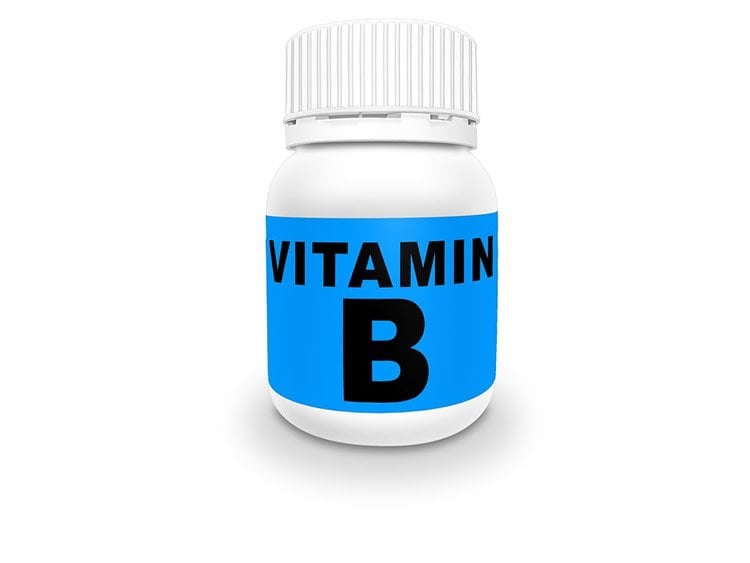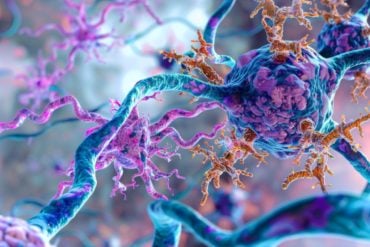Summary: A new study reports vitamins B12, B6 and folic acid can help improve concentration in people experiencing their first episode of psychosis.
Source: Orygen.
B-group vitamins may be beneficial for maintaining concentration skills among people experiencing a first episode of psychosis, a study by researchers from Orygen, the National Centre of Excellence in Youth Mental Health, has found.
The study, led by Dr Colin O’Donnell, now at Letterkenny University Hospital, and Dr Kelly Allott from Orygen, explored the impact of increasing a person’s intake of vitamins B12, B6, and folic acid [vitamin B9] after studies in people with schizophrenia revealed that increased intake of these vitamins could decrease patients’ levels of an amino acid called homocysteine and improve their symptoms.
Dr Allott said elevated levels of homocysteine in people living with schizophrenia had been associated with more severe symptoms. “Given previous studies have shown that increasing the intake of vitamin B12, B6, and folic acid decreases homocysteine levels and improves symptoms among people with schizophrenia, we wanted to find out whether giving these vitamins to people experiencing first episode psychosis would achieve similar results,” she said.
A first episode of psychosis can be a precursor to developing schizophrenia but psychotic symptoms may also be associated with bipolar disorder or severe depression.
In the study 100 young people attending Orygen Youth Health’s Early Psychosis Prevention and Intervention Centre (EPPIC) were randomly assigned to receive either B-vitamin supplements or a placebo tablet once per day over 12 weeks. During this period, patients’ homocysteine levels, symptoms and cognitive functioning (e.g., memory, attention, language, and learning abilities) were assessed.
The results have been published in the current issue of the journal Biological Psychiatry.

Dr Allott said the results showed that participants who received the B-vitamin supplements performed better in completing concentration and attention tasks over the 12 weeks than the participants who received placebo.
“This indicates the B-vitamins could have a neuroprotective effect; although they are not improving a patient’s concentration skills, they may be protecting these skills from declining,” Dr Allott said.
“Psychosis is a diverse condition where everybody presents with different symptoms and a different biological profile. What was particularly interesting was that the participants who had abnormally high homocysteine levels at baseline were most responsive to the B-vitamin supplements, in terms of improvement in attention. The results of this study support a more personalised approach to vitamin supplementation in first episode psychosis, suggesting those with elevated homocysteine are likely to benefit most.”
Funding: Study funded by Stanley Medical Research Institute, University of Melbourne, National Health and Medical Research Council, Blackmores Institute, Colonial Foundation.
Source: Kim Taylor – Orygen
Publisher: Organized by NeuroscienceNews.com.
Image Source: NeuroscienceNews.com image is in the public domain.
Original Research: Abstract for “The Vitamins in Psychosis Study: A randomized, double-blind, placebo-controlled trial of the effects of vitamin B12, B6 and folic acid on symptoms and neurocognition in first-episode psychosis” by Divna Lazic, Abhay P. Sagare, Angeliki M. Nikolakopoulou, Kelly Allott, DPsych, Patrick D. McGorry, PhD, Hok Pan Yuen, MSc, Joseph Firth, PhD, Tina-Marie Proffitt, DPsych, Gregor Berger, MD, Paul Maruff, PhD, Michaela K. O’Regan, PGDip, Alicia Papas, DPsych, Timothy C.B. Stephens, and Colin P. O’Donnell in Biological Psychiatry. Published January 9 2019.
doi:10.1016/j.biopsych.2018.12.018
[cbtabs][cbtab title=”MLA”]Orygen”B-Group Vitamins Can Improve Concentration In People With First Episode Psychosis.” NeuroscienceNews. NeuroscienceNews, 15 January 2019.
<https://neurosciencenews.com/b-vitamins-psychosis-10549/>.[/cbtab][cbtab title=”APA”]Orygen(2019, January 15). B-Group Vitamins Can Improve Concentration In People With First Episode Psychosis. NeuroscienceNews. Retrieved January 15, 2019 from https://neurosciencenews.com/b-vitamins-psychosis-10549/[/cbtab][cbtab title=”Chicago”]Orygen”B-Group Vitamins Can Improve Concentration In People With First Episode Psychosis.” https://neurosciencenews.com/b-vitamins-psychosis-10549/ (accessed January 15, 2019).[/cbtab][/cbtabs]
Abstract
The Vitamins in Psychosis Study: A randomized, double-blind, placebo-controlled trial of the effects of vitamin B12, B6 and folic acid on symptoms and neurocognition in first-episode psychosis
Background
Elevated homocysteine is observed in schizophrenia and associated with illness severity. The aim was to determine if vitamin B12, B6 and folic acid lowers homocysteine and improves symptomatology and neurocognition in first-episode psychosis. Whether baseline homocysteine, genetic variation, sex and diagnosis interact with b-vitamin treatment on outcomes was also examined.
Methods
Randomized, double-blind, placebo-controlled trial. One-hundred and twenty patients with first-episode psychosis were randomized to adjunctive b-vitamin supplement (containing folic acid 5mg, B12 0.4mg, B6 50mg) or placebo, taken once-daily for 12-weeks. Co-primary outcomes were change in total symptomatology (PANSS) and composite neurocognition. Secondary outcomes included additional measures of symptoms, neurocognition, functioning, tolerability and safety.
Results
B-vitamin supplementation reduced homocysteine levels (p=.003; ES=-0.65). B-vitamin supplementation had no significant effects on PANSS total (p=.749) or composite neurocognition (p=0.785). There were no significant group differences in secondary symptom domains. A significant group difference in the attention/vigilance domain (p=.024; ES=0.49) showed the b-vitamin group remained stable and the placebo group declined in performance. 14% of the sample had elevated baseline homocysteine levels, which was associated with greater improvements in one measure of attention/vigilance following b-vitamins. Being female and having affective psychosis was associated with improved neurocognition in select domains following b-vitamins. Genetic variation did not influence b-vitamin treatment response.
Conclusion
While 12-week b-vitamin supplementation may not improve overall psychopathology and global neurocognition, it may have specific neuroprotective properties in attention/vigilance, particularly in patients with elevated homocysteine levels, affective psychosis and females. Results support a personalised medicine approach to vitamin supplementation in FEP.






